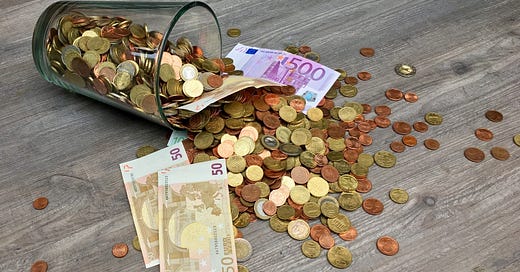How to Lose $20 billion in 2 Days
This story is about Bill Hwang and Archegos Capital. Hwang is a Korean-born American investor and trader. Starting in 2013 with $200 million as capital from previous work, he 100x’d the money in a few years to turn it into $20 billion.
In two eventful days in 2021, he reportedly lost it all. No human has ever lost that much money that quickly in history. This also led to a number of banks losing billions of dollars and the tremors were felt in the stock market.
The name Bill Hwang was mostly unknown to the world, to me too, before these events were reported in the news. He was an immigrant to the USA and completed his MBA from Carnegie Mellon University. Hwang then went on to work with one of the most prolific fund managers in history, Julian Robertson, at the firm Tiger Management. The fund was so successful that many employees later started their own successful hedge funds, which were popularly known as “tiger cubs”.
Bill created an Asia-specific fund in the early years, reported to have turned $1.2 billion into $5 billion in a few years. He used leverage, or in simple words, debt to increase the performance of his trades. Sometime around 2008, it became clear that his strategy was hinged on betting big on a small number of picks, vastly different from the idea of diversification most of the world’s money managers talk about.
In a turn of events, in 2012, Hwang pleaded guilty to fraud charges of insider trading and later returned money to his investors. But he was still a money-making trader and for that reason, he was still able to borrow money from all the usual suspects.
After this episode, he created a family office by the name of “Archegos Capital”. He stuck to his investment strategy, which by most metrics you would tag risky, since he was betting big on a relatively small number of stocks, with his money and the lenders’. Reports say Archegos managed $10 billion, but the value of its positions was closer to $30 billion, primarily due to a type of contract called “Total Return Swaps”.
These contracts essentially are a way for the borrower to take large positions in a stock without actually needing the funds to have access to the profits, and LOSSES. Of course, this all works on a fee-based model, so lenders were happy to give this money to Hwang who had proved to be an excellent trader. The contract is built on the trust that the borrower would pay back the money and would sell the positions if it didn’t go the way they wanted. And this type of contract had the added benefit of not making it clear to outsiders looking in, that the positions were actually Archegos’, since on paper they would look like the banks’.
It was all well and good until the stocks of Baidu Inc and Farfetch Ltd began to sell off, both of which were names in the book of Archegos. And the real problem started when on 2nd March, Viacom CBS announced they would be selling more stock in the company, which led to around a 20% dip in the price. Archegos Capital held a stake well into the billions in the company and they would have been asked by the lending banks to sell to avoid a default scenario.
Even if one of the banks started selling the stock, even to be safe and be ahead of the curve, the snowball would lead to other banks losing big money and Hwang being wiped out completely. To avoid this type of selling, the banks wanted more money as collateral against the loans and Hwang had to sell the other positions to post it. But now Archegos was no longer as strong a borrower as before, and the banks knew.
So Morgan Stanley and Goldman Sachs were reported to be the first two major sellers of the above-mentioned positions, which saved them a lot of losses. But this created a lot of panic in the market and the names in the Archegos book would have taken a hit. It was estimated that between the six banks involved, the loss was around $10 billion, and Hwang personally lost around $20 billion.
This sequence of events highlights how some families and fund managers can literally affect the complete market and the lives of millions of people associated by making greedy bets. This wasn’t the first time greed prevailed and money was lost, and it most probably won’t be the last. We’ll see. More on greed in the markets here.
While that’s it for this article, you can subscribe for free to receive new posts and support my work. And do let me know if you want a specific topic covered!
P.S. You can read all my articles here.



